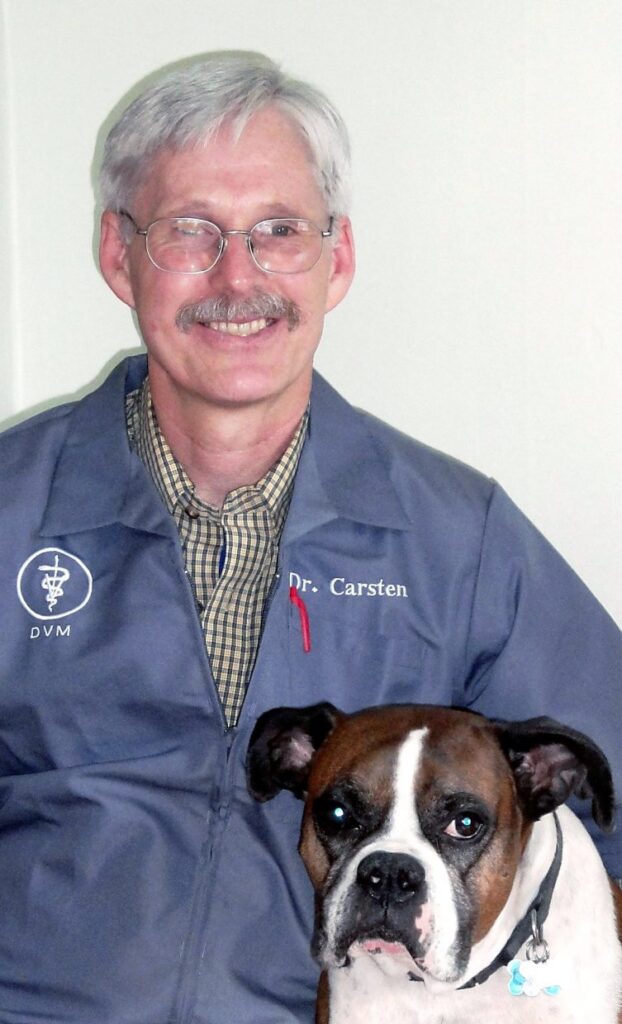Regular physical activity is just as essential for our own health as it is for our pet companions. Daily physical activity has been shown to have a variety of benefits, including strengthening muscles and bones, improving brain and heart health, promoting weight management, and reducing anxiety, stress, and disease risk. Many dogs and cats don't get enough regular exercise, especially in the winter. The short days, snow, ice, and cold make it less conducive to daily exercise.
It is common for people to gain weight in the winter and lose muscle as they become less active. This can be a problem for some pets. For example, it is estimated that 54% of dogs and 60% of cats are overweight or obese. Obesity contributes to an increased risk of cancer, heart disease, and joint deterioration. Obesity is also known to shorten lifespan. It turns out that moderately overweight dogs live nearly two years less than lean dogs. Some authorities believe that obese cats between the ages of 8 and 12 are 2.8 times more likely to die, and that cats may have a similar shortened lifespan.
Loss of muscle mass due to lack of exercise occurs rapidly and can lead to decreased strength and mobility. This loss of muscle in older pets can be a significant problem because as we age, molecular signals that promote muscle breakdown rather than muscle building are prioritized. Loss of muscle mass not only affects the ability to perform normal activities such as walking, navigating stairs, and handling smooth surfaces, but also affects glucose and energy metabolism. Muscles are involved in large amounts of glucose metabolism, and up to 80% of glucose is taken up by muscles after a meal.
Studies in humans have shown that regular exercise improves brain health, leading to improved thinking and memory. Exercise is thought to promote or improve brain cells in humans and pets. In dogs, exercise appears to reduce the problem of cognitive dysfunction. Another important benefit of promoting exercise in your pet is that it increases the amount of activity in your human companion, especially during the winter months.
Colorado winters bring certain challenges to outdoor activities with your pet, so it's important to have a strategy in place. This strategy should include some indoor activities that will benefit both your dog and cat. The amount and type of exercise activity varies by breed and species (dog or cat). Most pets benefit from about 30 minutes of activity each day. Younger dogs may require higher amounts, while older dogs may be limited by health issues such as osteoarthritis or heart disease. Also consider that some dog breeds, such as short-faced breeds, breathe harder than others and require more rest time when exercising. High-energy breeds, such as terriers and sporting dogs, may require more than 30 minutes of exercise and may benefit from twice-daily exercise. For cats, it is believed that it is beneficial for him to divide the activity into multiple sessions of 10 or 15 minutes of moderate activity.
When we think of dog activities, we tend to think of walking, but there are a variety of other activities depending on your pet's health condition and the season, such as playing ball, hiking, and swimming. Some dogs like to push a big ball around. In winter, activities that can be done indoors are effective. These include simple obstacle games using household items such as broomsticks, cardboard boxes, and sofa cushions. Check out dog yoga (doga) for a healthy option. Some dogs enjoy scent work, scouring the house for designated items. Such activities can also increase mental stimulation. Cats benefit from chasing and wrestling with toys. There are also exercise wheels for cats that some cats find fun.
In winter, we often become less active, so we need to reduce our calorie intake. This helps with weight management. The use of food puzzles helps provide mental stimulation and an opportunity to reduce caloric intake without distressing your pet.
When going outdoors with your pet, be wary of ice, hard snow, and salty sidewalks. If you have any questions about your pet's exercise or special health considerations, please contact your veterinarian.
Ron Carsten, DVM, PhD, CVA, CCRT, was one of the first veterinarians in Colorado to use an integrative approach and lectures widely to veterinarians to help manage clinical problems. He also pioneered the therapeutic use of concentrated foods.He also of Founder of Colorado Animal Rescue (CARE). In addition to his Doctor of Veterinary Medicine, he holds a PhD in Cellular and Molecular Biology and is a certified veterinary acupuncturist and certified canine rehabilitation therapist. He practices integrative veterinary medicine in Glenwood Springs. Dr. Kirsten is the 2022 Colorado Veterinary Medical Association Achievement Award recipient.


